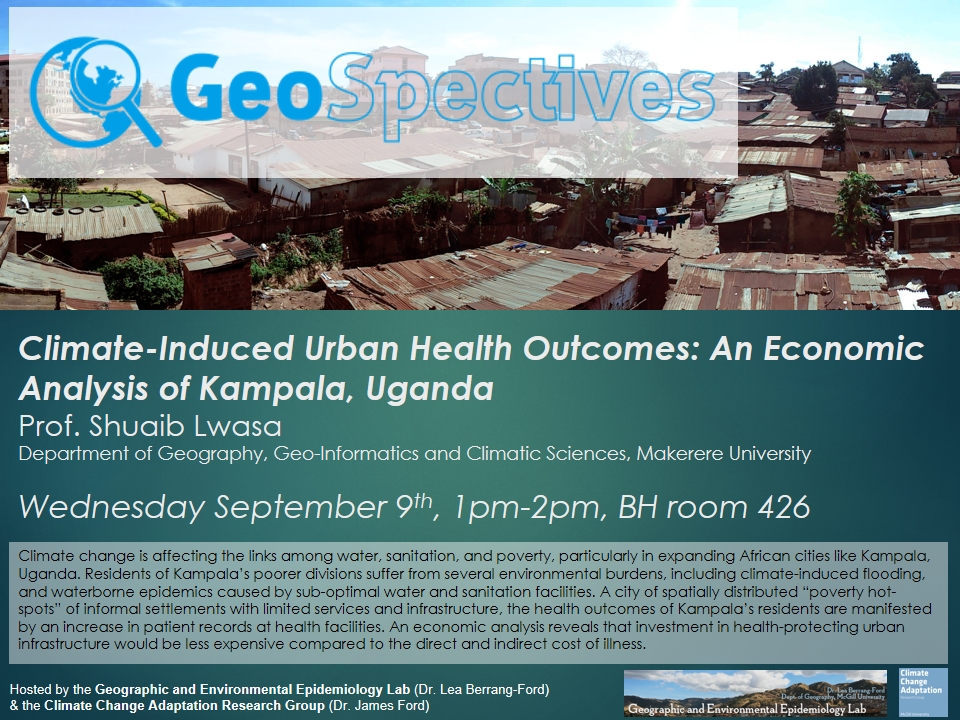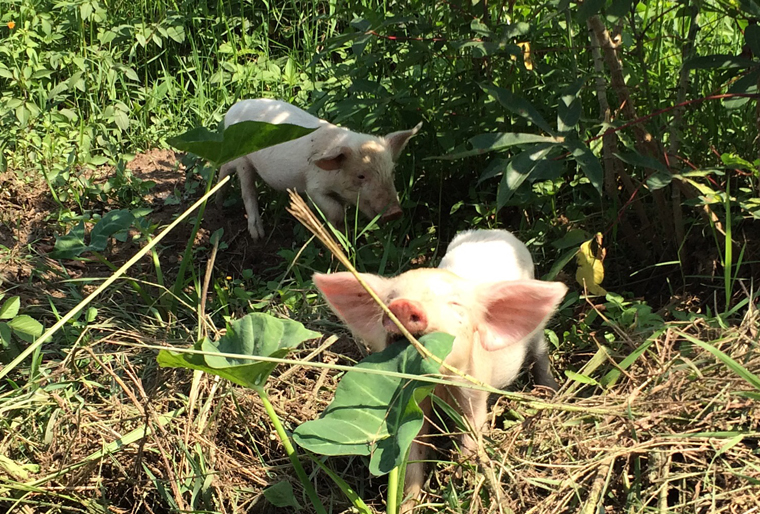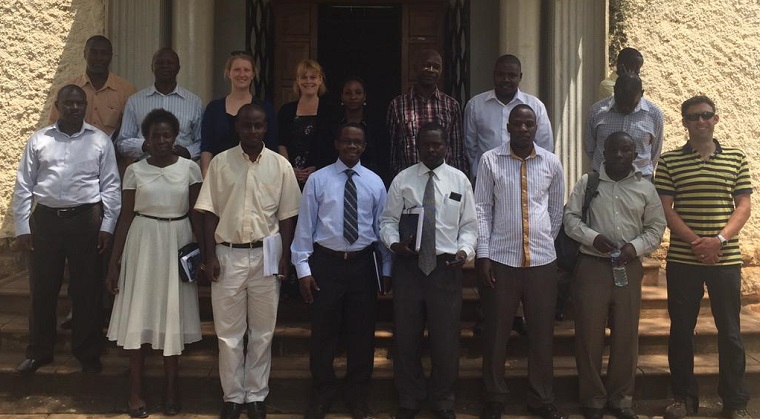Citation:
Bishop-Williams K.E., Berrang-Ford, L., Sargeant, J., Pearl, D.L., Lwasa, S., Namanya, D.B., Edge, V.E., Cunsolo, A., IHACC Research Team, Bwindi Community Hospital, Huang, Y., Ford, J., Garcia, P., Harper, S.L. (2018) Understanding weather and hospital admissions patterns to inform climate change adaptation strategies in the healthcare sector in Uganda. Int Journal Environ Res Public Health 15(11): 2402.
Abstract
Background: Season and weather are associated with many health outcomes, which can influence hospital admission rates. We examined associations between hospital admissions (all diagnoses) and local meteorological parameters in Southwestern Uganda, with the aim of supporting hospital planning and preparedness in the context of climate change.
Methods: Hospital admissions data and meteorological data were collected from Bwindi Community Hospital and a satellite database of weather conditions, respectively (2011 to 2014). Descriptive statistics were used to describe admission patterns. A mixed-effects Poisson regression model was fitted to investigate associations between hospital admissions and season, precipitation, and temperature.
Results: Admission counts were highest for acute respiratory infections, malaria, and acute gastrointestinal illness, which are climate-sensitive diseases. Hospital admissions were 1.16 (95% CI: 1.04, 1.31; p = 0.008) times higher during extreme high temperatures (i.e., >95th percentile) on the day of admission. Hospital admissions association with season depended on year; admissions were higher in the dry season than the rainy season every year, except for 2014.
Discussion: Effective adaptation strategy characteristics include being low-cost and quick and practical to implement at local scales. Herein, we illustrate how analyzing hospital data alongside meteorological parameters may inform climate-health planning in low-resource contexts.














